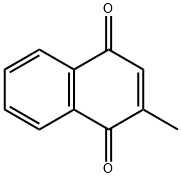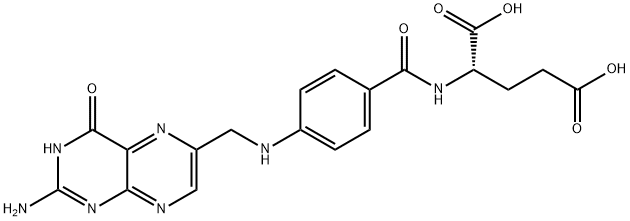Vitamin K2 , 0 , 863-61-6
Synonym(s):
Menaquinone 4;Menatetrenone
| Pack Size | Price | Stock | Quantity |
| 250MG | RMB263.20 | In Stock |
|
| 1G | RMB799.20 | In Stock |
|
| 5g | RMB2639.20 | In Stock |
|
| others | Enquire |
PRODUCT Properties
| Melting point: | 350C |
| Boiling point: | 494.59°C (rough estimate) |
| Density | 1.0461 (rough estimate) |
| refractive index | 1.5045 (estimate) |
| Flash point: | 2℃ |
| storage temp. | -20°C |
| solubility | Chloroform (Slightly), Ethyl Acetate (Slightly), Methanol (Slightly, Heated) |
| form | Solid |
| color | Light Yellow to Yellow Oil |
| InChIKey | DKHGMERMDICWDU-GHDNBGIDSA-N |
| CAS DataBase Reference | 863-61-6(CAS DataBase Reference) |
Description and Uses
Menatetrenone (also known as MK-4) is a manaquinone compound and a vitamin K compound which can be used as a hemostatic agent as well as adjunctive therapy for the pain of osteoporosis. It mainly takes effects through modulating the signaling of certain tyrosine kinases, thereby affecting several transcription factors including c-myc and c-fos. It is capable of inhibiting tumor cells growth through inducing apoptosis and cell cycle arrest. It can be produced via the conversion of vitamin K1 inside the body including the testes, pancreas and arterial walls.
Menaquinones are isoprenoid quinones of the naphthalene series and belongs to the K2 Vitamin homologs. Menaquinones were originally discovered as the anti-hemorrhagic factor and now encompasses a variety of physiological processes. Menaquinone 4 has four isoprene residue in its side chain and is also commonly refered to as menatetrenone. Menaquinone-4 is the most common type of vitamin K2 and is known as a hemostatic agent and is used as adjunctive therapy for the pain of osteoporosis.
Safety
| Symbol(GHS) |   GHS02,GHS07 |
| Signal word | Danger |
| Hazard statements | H225-H302+H312+H332-H319 |
| Precautionary statements | P210-P280-P305+P351+P338 |
| Safety Statements | 22-24/25 |
| RIDADR | UN 1648 3 / PGII |
| WGK Germany | 3 |
| RTECS | QL9279500 |
| HS Code | 2914699000 |
| Toxicity | LD50 intravenous in dog: > 40mL/kg |



